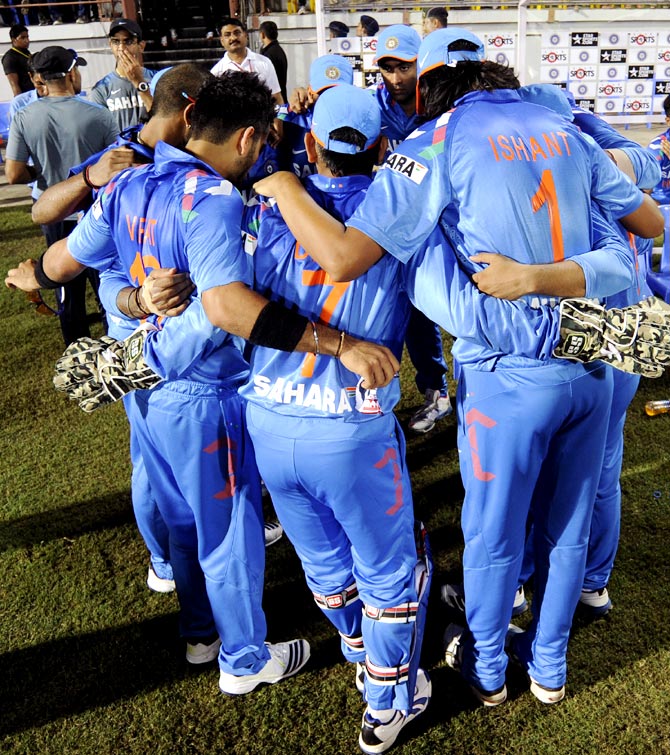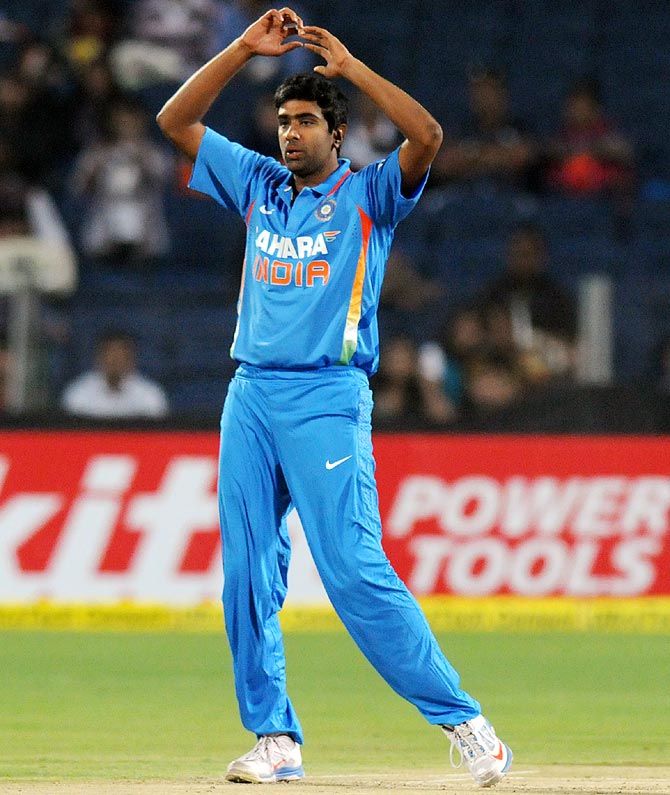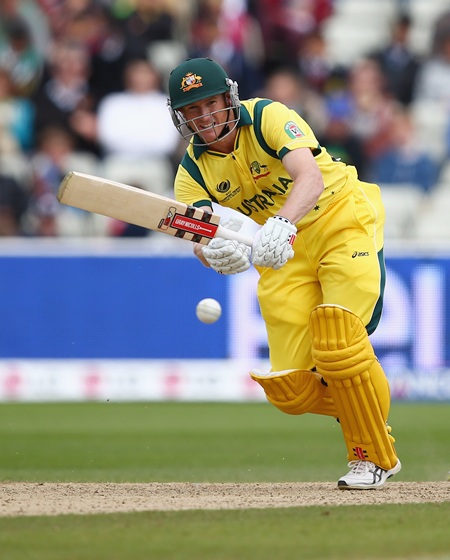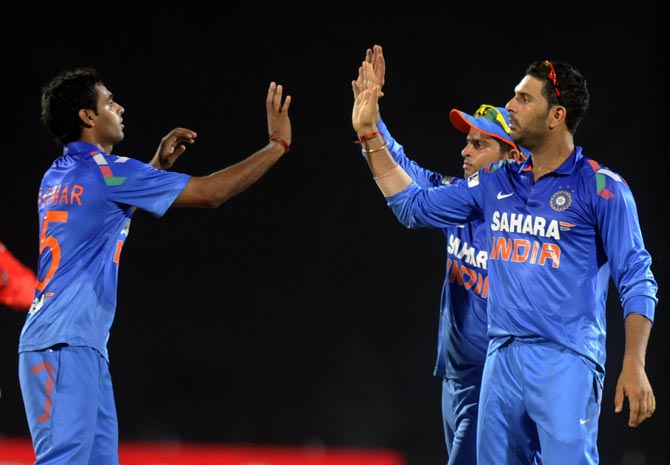Photographs: BCCI
The Indian team will look to kick off their new season with a victory, when they take on Australia in the seven-match One-Day International series, starting in Pune, on Sunday.
The World champions are a dominant force in One-Dayers, especially at home and they would look to retain its top spot in the rankings when they clash with a relatively inexperienced Australian side, who have several key players missing because of injuries.
India have enjoyed a good run in One-Dayers so far this year. Except losing a three-match series to Pakistan at the start of 2013, they have had tremendous success, winning series after series including the ICC Champions Trophy earlier this year.
The hosts will also take confidence from their 4-0 series whitewash against Australia 4-0 in the February-March Test series. However, avenging that loss would be a herculean task for the visitors, who have come without inspiring skipper Michael Clarke because of injury even as their batsmen gave a good account of themselves in the one-off Twenty20 in Rajkot.
India, a tough nut to crack in home conditions
Photographs: BCCI
Australia did beat England in the ODI series post their Ashes debacle but India are a tough nut to crack in home conditions. And the visitors have got a fair idea about the task ahead after failing to defend a 200-plus total in Rajkot.
The Australian attack was subdued by the Indian batsmen, specially the comeback-man Yuvraj Singh, who took the game away from them with his blitzy 35-ball 77 in Rajkot.
The left-hander has always been a vital cog in India's middle-order and the way he batted in his first game, Australia would be wary of him.
The Australians lack an effective spinner in their attack hence the pacemen need to come up with something very special to stop the rampaging Indian batting line up.
Bowling department, a worrying factor
Image: Ravichandran AshwinPhotographs: BCCI
Bowling would be a little worry for Indian skipper Mahendra Singh Dhoni also as paceman Ishant Sharma and spinner R Aswhin were carted around by the Australians in T20.
Ashwin usually is a reliable weapon but he bled 41 runs in his two overs and Sharma conceded 52 in his four, forcing introduction of part-timer Virat Kohli in the attack.
The saving grace was Bhuvaneshwar Kumar and R Vinay Kumar, who picked up three wickets apiece. Left arm spinner Ravindra Jadeja bowled very effectively with his flatter trajectory.
Luckily for the Indians, barring a stroke-filled 89 from 52 balls by opener Aaron Finch, other Aussie batsmen could not capitalise fully on the poor Indian bowling.
Australia hopes rest on all-rounder Watson
Image: George BaileyPhotographs: Michael Steele/Getty Images
The Aussies would require their batsmen to stay longer at the crease and make good starts count in the 50-over game.
They certainly would expect better contributions than single digit scores that they fell for from captain Bailey and key all rounder Shane Watson.
Watson, who is the most experienced player in the side and also knows conditions well, flopped in bowling also and he needs to fire on both fronts if Australia are to succeed and win the series.
India holds the edge
Image: Yuvraj Singh (right) congratulates Bhuvneshwar Kumar (right)Photographs: BCCI
Even though the matches commence one hour earlier than is the custom in India, the team bowling second would obviously have to factor in the dew fall which makes the ball skid off the track and trouble the spinners from having a firmer grip.
This game is the first ODI to be played at the newly built Maharashtra Cricket Association Stadium that became an international venue last year when India and England clashed in a T20 International.
The fact that India have won the last two ODIs played at home against Australia in October 2010 and March 2011 (World Cup quarter final) also provides an indication of who, between the two teams currently, holds the edge in these conditions.






Comment
article